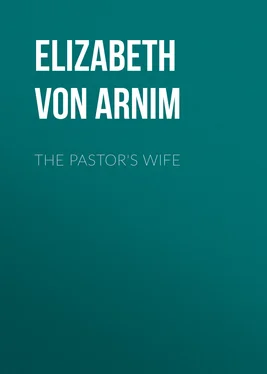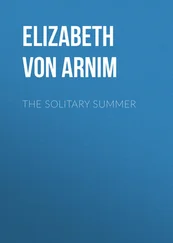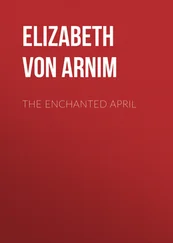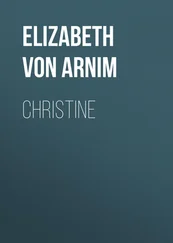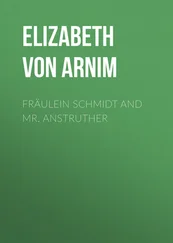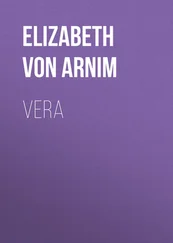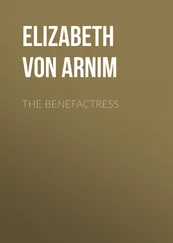Elizabeth von Arnim - The Pastor's Wife
Здесь есть возможность читать онлайн «Elizabeth von Arnim - The Pastor's Wife» — ознакомительный отрывок электронной книги совершенно бесплатно, а после прочтения отрывка купить полную версию. В некоторых случаях можно слушать аудио, скачать через торрент в формате fb2 и присутствует краткое содержание. Издательство: Иностранный паблик, Жанр: foreign_prose, foreign_antique, на английском языке. Описание произведения, (предисловие) а так же отзывы посетителей доступны на портале библиотеки ЛибКат.
- Название:The Pastor's Wife
- Автор:
- Издательство:Иностранный паблик
- Жанр:
- Год:неизвестен
- ISBN:нет данных
- Рейтинг книги:5 / 5. Голосов: 1
-
Избранное:Добавить в избранное
- Отзывы:
-
Ваша оценка:
- 100
- 1
- 2
- 3
- 4
- 5
The Pastor's Wife: краткое содержание, описание и аннотация
Предлагаем к чтению аннотацию, описание, краткое содержание или предисловие (зависит от того, что написал сам автор книги «The Pastor's Wife»). Если вы не нашли необходимую информацию о книге — напишите в комментариях, мы постараемся отыскать её.
The Pastor's Wife — читать онлайн ознакомительный отрывок
Ниже представлен текст книги, разбитый по страницам. Система сохранения места последней прочитанной страницы, позволяет с удобством читать онлайн бесплатно книгу «The Pastor's Wife», без необходимости каждый раз заново искать на чём Вы остановились. Поставьте закладку, и сможете в любой момент перейти на страницу, на которой закончили чтение.
Интервал:
Закладка:
"We never can tell what a day may bring forth," said the Bishop; and Ingeborg, deeply convinced, drooped her head acquiescent.
"No man," began the Bishop, habit being strong within him, "knoweth the hour when the bridegroom—" But he stopped, recollecting that Ingeborg was not engaged and therefore could not with propriety be talked to of bridegrooms. Instead, he inquired again why she had not written; and eyeing her searchingly asked himself if it were possible that a child of his could be base enough to envy.
"I—didn't get the letters," said Ingeborg, her head drooping.
"You did not? That is very strange. Your mother wrote at once. Let me see. It was on Friday it happened. It was Friday, was it not, Judith? You ought to know"—Judith blushed obediently—"and to-day is Tuesday. Ample time. Ample time. My dear," he said, turning to his wife who at once twitched into a condition of yet further relaxed defencelessness, "do you think it possible your letter was not posted?"
"Quite, Herbert," murmured Mrs. Bullivant, closing her eyes and endeavouring to imagine herself unconscious.
"Ah. Then that's it. That's it. Wilson is growing careless. This last week there have been repeated negligences. You will make inquiries, Ingeborg, and tell him what I have said."
"Yes, father."
"And you will discharge him if he goes on like this."
"Yes, father."
"Unfaithful servant. Unfaithful servant. He that is unfaithful in a few things—"
The Bishop, frowning at it, took a second piece of bread and butter, and went over to the hearthrug, where he stood from force of habit, in spite of the warmth of the day, drinking his tea, and becoming vaguely and increasingly irritated by the action of the fire behind him.
"Then," he said, looking at Ingeborg, "you know nothing about it?"
She shook her head. She was the oddest figure in the middle of the splendid old room, travel-stained, untidy, her face white with fatigue, her hat crooked.
Judith glanced at her every now and then, but it was impossible at any time to tell what the delicate white rose at the tea-table was thinking; so impossible that the young men who clustered round her like bees when they first saw her gave it up and went on presently to more communicative flowers. The local Duchess had hoped her first-born would marry him—a creature so lovely, so entirely respectable with that nice Bishop for a father, and so happily adapted in the perfection of her proportions for the successful production of further dukes; and she pointed out various aspects of the girl's exquisiteness to her son, and told him he would have the most beautiful wife in England. But the young man, after a reproachful look at his mother for supposing he could have missed noticing even the humblest approach to a pretty woman let alone Judith Bullivant, said he didn't want to marry a picture but something that was alive and, anyhow, something that talked.
"She's right enough, of course," he remarked, "and I like looking at her. I'd be blind if I didn't. But Lord, dull? The girl hasn't got a word to say for herself. I never met any woman who looked so ripping and then somehow wasn't. She won't talk. She won't talk ," he almost wailed. "She ain't got the remotest resemblance to anything approaching kick in her."
"You might end by being thankful for that," said his mother.
He would not, however, be persuaded, and went his way and married, as the Duchess had feared, a young lady from the halls—a young lady nimble not only of toes but of wits, nimble, that is to say, as he proudly pointed out to his mother, at both ends, with whom he lived in great contentment, for she amused him, which is much.
"I have not observed you offer any congratulations, Ingeborg," said the Bishop, becoming more and more displeased by her strange behaviour, and not at all liking her crumpled and forlorn appearance. He again thought of envy, but that alone could not crumple clothes. "And yet your sister," he said, getting a little further away from the fire which had begun to scorch him unpleasantly, "is to be the wife of the Master."
"The Master?" repeated Ingeborg, stupidly. For a moment her tormented brain supposed Judith must be going to be a nun.
"There is only one Master," said the Bishop, in his stateliest manner. "Everybody knows that. The Master of Ananias."
Ingeborg knew this was a great thing. The Master of Ananias, the most celebrated of Oxford colleges, was in every way, except perhaps that of age, desirable; but what was age when it came to all the other desirabilities? Her father had rebuked her once for speaking of him as old Dr. Abbot, and had informed her the Master was only sixty, and that everybody was sixty—that is, said the Bishop, everybody of any sense. He was not a widower, he was pleasant to look at in a shaven iron-grey way, he was brilliantly erudite, and extremely well off apart from his handsome salary, one of the handsomest salaries in the gift of the Crown. Several years before, when Judith was still invisible in a pinafore, he had stayed at the Palace—it was then Ingeborg spoke of him as old—and had been treated by her father with every attention and respect: He had on that occasion seemed glad to go. Now it appeared he had been again, and must have fallen immediately—and overwhelmingly in love with Judith for his short visit to bridge the distance between a first acquaintance and an engagement. Who, however, knew better than herself how quickly such distances can be bridged?
She wanted to go and kiss Judith and say sweet things to her, but her feet seemed unable to move. She wanted to congratulate everybody with all her heart if only they would be kind and congratulate her a little, too. For Judith had heard what she said before her father came in, and her mother had heard it, and the room was heavy with the uttered name of Dremmel.
She looked round at them—her father waiting for her to show at least ordinary decency and feeling, Judith so safe in the family's approval, so entirely clear from hidden things, her mother lying with closed eyes and expressionless face, and she suddenly felt intolerably alone.
"Oh, oh—" she cried, holding out her hands, "doesn't anybody love me?"
This was worse than her toothache.
Her family had endured much during those days, but at least there was a reason then for the odder parts of her behaviour. Now they were called upon to endure the distressing spectacle of a hitherto reserved relative letting herself go to unbridledness. Ingeborg was going to make a scene; and a scene was a thing that had never yet, anyhow not during the entire Bullivant period, been made in that house.
Mrs. Bullivant shut her eyes tighter and tried to think she was not there at all.
Judith turned red and again became absorbed in the teapot.
The Bishop, after the first cold shock natural to a person called upon to contemplate nakedness where up to then there had been clothes, put down his cup on the nearest table and, with an exaggerated calm, stared.
They all felt intensely uncomfortable; as uncomfortable as though she had begun, in the middle of the drawing-room, to remove her garments one by one and cast them from her.
"This is very sad, Ingeborg," said the Bishop.
"Isn't it—oh, isn't it—" was her unexpected answer, tears in her eyes. She was so tired, so frightened. She had been travelling hard since the morning of the day before. She had had nothing to eat for a time that seemed infinite. And yet this was the moment, just because she had betrayed herself to her mother and Judith, in which she was going to have to tell her father what she had done.
"It is the most distressing example," said the Bishop, "I have ever seen of that basest of sins, envy."
"Envy?" said Ingeborg. "Oh, no—that's not what it is. Oh, if it were only that! And I do congratulate Judith. Judith, I do, I do, my dear. But—father, I've been doing it too."
Читать дальшеИнтервал:
Закладка:
Похожие книги на «The Pastor's Wife»
Представляем Вашему вниманию похожие книги на «The Pastor's Wife» списком для выбора. Мы отобрали схожую по названию и смыслу литературу в надежде предоставить читателям больше вариантов отыскать новые, интересные, ещё непрочитанные произведения.
Обсуждение, отзывы о книге «The Pastor's Wife» и просто собственные мнения читателей. Оставьте ваши комментарии, напишите, что Вы думаете о произведении, его смысле или главных героях. Укажите что конкретно понравилось, а что нет, и почему Вы так считаете.
